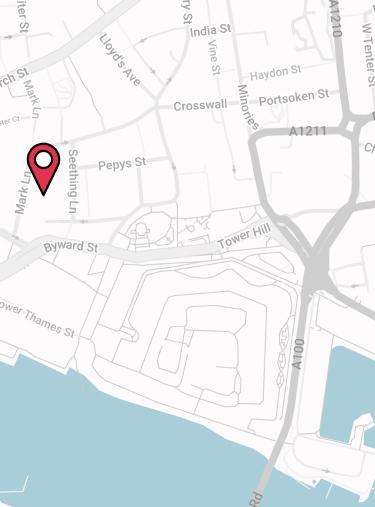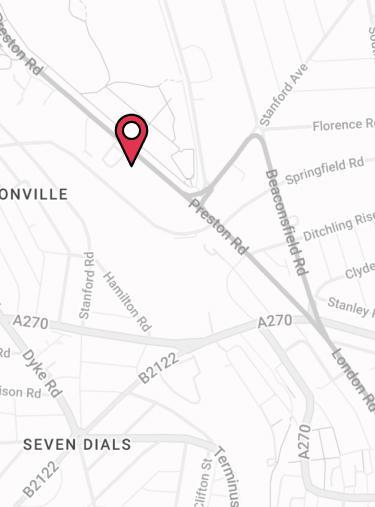As more of us switch to green energy and sustainable living, electric cars are a fantastic way to reduce carbon emissions.
A Salary Sacrifice electric car scheme is a good idea if you want to offer an eco-conscious employee benefit. Staff receive a new electric vehicle at an affordable price, and help the environment.
But how much does it cost to offer such a great employee benefit? To help you better understand what they are and how much you can expect to pay we’ve put together this handy guide.
What Is A Salary Sacrifice Electric Car Scheme?
A Salary Sacrifice electric vehicle scheme is like other Salary Sacrifice schemes. By signing up, employees agree to exchange part of their monthly gross salary for a non-cash benefit. This could be a Workplace Pension scheme, a Cycle to Work programme, or, in this case, a lease for an electric vehicle (EV).
As a company you sign a lease agreement with a provider and then pass this lease onto your employees. When an employee signs up, they pay a monthly price that covers the lease cost and in return, they get to pick a brand new EV for business and personal use.
As the cost of the car is passed onto your employees you, as an employer, don’t need to pay anything. Learn more about how Salary Sacrifice works for employers.
What Types of Cars Are Available on a Scheme?
Most leasing companies have a wide range of electric vehicle makes and models. Tesla, Toyota, Citroen, Ford and Fiat — there’s a large selection.
The availability will depend on the different models in stock and manufacturer queues. Cars aren’t always ready as production is smaller than it is for petrol and diesel vehicles.
However leading providers tend to predict high demand and pre-order the most popular cars to avoid delays. So, your team can get their electric vehicles sooner rather than later.
Who is Eligible To Take Part in an Electric Car Salary Sacrifice Scheme?
A Salary Sacrifice car scheme is available to all employees, providing they meet certain criteria.
Employees can sign up if they:
- Hold a valid UK driving licence
- Earn enough to ensure deductions don’t reduce earnings to below minimum wage
- Meet eligibility for insurance purposes. Criteria depends on the specific insurance policy holder.
As the employer, you can set any criteria you wish. For example, employees might not be eligible to sign up until after their probationary period.
Even if eligible, it’s important to make sure employees know exactly what they’re signing up for before registering on a scheme. Reducing their gross salary could affect the amount they can borrow for a mortgage, and their maternity and paternity entitlement.
Why Set Up a Salary Sacrifice Electric Car Scheme?
One of the biggest benefits of an electric car scheme is its accessibility. Buying an EV outright isn’t affordable for everyone, but a scheme gives employees access to one for less. At the same time, it also helps your company contribute to the UK government’s net zero strategy.
There are many other reasons that make salary sacrifice worth it when it comes to EVs. We’ve highlighted these below:
Benefits of an Electric Car Scheme For Employers
- Increases employee engagement and productivity
- Reduces your company’s carbon footprint
- Offers significant National Insurance savings
- No setup cost and easy to run.
Benefits of an Electric Car Scheme For Employees
- Brand new vehicle for less, no upfront costs or credit checks
- Income tax and National Insurance savings
- All-in-one package – maintenance, servicing, breakdown cover and insurance
- Cheaper running costs.
How Much Does A UK Salary Sacrifice Electric Car Scheme Cost to Set Up?
A Salary Sacrifice car scheme is a valuable benefit as it costs nothing for a business to set up. It works through a credit agreement between the leasing company and employer.
Your business will have to pay a monthly payment to cover the lease, but this is covered immediately through the salary sacrificed by the employee, which helps keep costs neutral for your company.
Like most employee benefits, the cost will vary on the chosen scheme provider.
What Are the Ongoing Costs Associated With a Salary Sacrifice Electric Vehicle Scheme?
While an electric car scheme does offer plenty of savings, there are other ongoing costs to consider.
Ongoing Costs for Employers
Although a scheme doesn’t cost anything for an employer to set up, there are potential costs you need to be aware of.
Early Termination Fees
One of these is early termination fees. If any employee needs to leave the scheme, you as the employer will be charged a fee.
Some providers do offer protection against this and will offer a number of early terminations without incurring a fee. Before signing up to a scheme it is important that you understand what the provider’s policy is so you don’t get any nasty surprises.
Ongoing Costs for Employees
Before signing up to a scheme it’s important that employees clearly understand the different costs attached to leasing a car via salary sacrifice. We’ve outlined these below.
Monthly Lease Cost
The main ongoing cost for an employee is the monthly payments. How much they pay depends on a variety of factors, including:
- The vehicle
- Mileage allowance
- Lease term
- Annual gross salary.
Monthly payments may vary depending on whether employees receive commission, bonuses or a pay rise. This is due to the fact it could affect the tax band they fall into. BiK rates can also change which will affect the price an employee pays. As of April 2025, the BiK rate for company car tax on electric cars increased from 2% to 3%. This will increase annually until at least 2029/30, but it’s still much lower than the rates for petrol/diesel and hybrid cars.
Damage Costs
There may be extra costs if the vehicle is returned damaged to the provider, depending on the extent of the damage. If the car is damaged during the lease and the employee doesn’t make an insurance claim, they’re responsible for repair costs.
Some providers do offer some protection for damage up to a certain amount. For example Octopus EV don’t charge a fee if the damage doesn’t exceed £500 (excluding VAT).
Excess Mileage
If an employee goes over the agreed mileage for the lease they will be charged for excess mileage. This fee will be invoiced to you, however you can recharge this to your employee by deducting it from their net take home pay.
Fines
If an employee gets caught speeding or receives a parking ticket, these costs will all need to be covered out of their own pocket. While this hopefully won’t happen too often, it’s still worth factoring in costs such as this before signing up to an agreement.
How Much Can Be Saved Through a Salary Sacrifice Scheme?
The savings that can be made through a Salary Sacrifice scheme is partly what makes the benefit so attractive to companies. Both the employer and employee can save money.
Savings for Employers
Although it’s employees who benefit from the biggest level of savings when it comes to EV Salary Sacrifice schemes, employers can also still benefit. Savings for businesses include:
Tax Savings
As a business, you pay National Insurance Contributions (NIC) on your employees’ salaries. Implementing Salary Sacrifice schemes is beneficial because it reduces company NIC. This is because salary deductions lead to lower taxable income, and less National Insurance as a result.
However, you’ll need to pay NIC on the Benefit in Kind (BiK) tax your employee pays for their benefit.
Reclaim VAT
Employees will be charged VAT as part of their gross monthly Salary Sacrifice for the vehicle. As an employer, you can claim back 50% of this if you’re VAT registered.
You can also claim some VAT back if a vehicle is charged on your workplace premises, VAT is charged at 20%, but 10% of this can be reclaimed through the scheme.
Fuel Reimbursement
Running a car on electricity rather than petrol or diesel is much cheaper for employers when it comes to fuel reimbursement.
The advisory fuel rate (set by HMRC) is 45p per mile for below 10,000 miles. This decreases to 25p above 10,000. For an EV, the price is just 5p per mile, offering a great saving on fuel expenses for your company.
Retention
Another saving a company can enjoy relates to recruiting and training new employees. An EV scheme is a sustainability initiative that looks appealing on a job ad. This helps attract candidates and retain current staff.
In fact, companies report lower employee turnover, and a more engaged team. With fewer staff leaving, your business doesn’t need to fork out to recruit and train new starters.
Considering the average cost to train a new employee in the UK is around £1,530, it pays to keep hold of your staff.
Savings for Employees
There are a number of savings employees can benefit from by signing up to a salary sacrifice electric car scheme. These include:
Cheaper To Run
With higher fuel and energy costs, it might be difficult to judge the cheapest mode of transport. That said, EV’s actually rank highly for being more cost-effective than petrol and diesel cars.
We put a quick comparison below.
The average UK person drives 20 miles a day and petrol costs around £1.91 per litre (at the time of writing). In a petrol Fiat 500C, 20 miles will cost an estimated £3.26 per day, or £1,190 a year.
The same journey in an electric Fiat 500 Cabrio (with estimated current energy usage of 28p/kWh), costs £1.29 per day, or £471 a year*.
*These estimates have been calculated using Zap Map’s journey cost calculator.
This tells us that running an EV can save hundreds of pounds per year compared to petrol motors.
Low-Cost Charging Tariffs
From our calculation of the average price per 20 mile journey, it does actually cost significantly less to charge and run an EV.
Even on a standard electricity tariff, charging a Nissan Leaf from empty to full costs around £8.48. This is estimated on the fact it takes about 13.3 hours to charge the car’s battery to its full usage of 168, which needs 40 kilowatt-hours of energy usage. So, at 21.2p/kWh, we get the figure £8.48 for a full charge, which equals 5p per mile.
Many EV salary sacrifice schemes offer cheaper electricity tariffs, making it more affordable. For example, Octopus Energy’s Go Tariff charges 7.5p per kWh between the hours of 00:30 and 04:30. Calculating these four hours (10kWh) at the low charge rate could bring the cost of a full charge down to £7.11.
Tax Reductions
Employees can look forward to paying less Income Tax and National Insurance with a salary sacrifice scheme. Sacrificing part of their salary reduces their taxable income, so NIC and Income Tax is lower.
As a result of this they can lease a brand new vehicle for much less than a personal lease.
What if an employee falls ill and is unable to pay the monthly price?
Some providers do offer protection against this. For example if an employee was on long-term sick leave and their salary dropped below minimum wage some providers will allow them to continue leasing the car free of charge for a period of time e.g. 3 months.
If they were off for longer the car can be returned, however this may come with an early termination fee which you as an employer would need to pay. Again some providers do offer protection for this by offering companies a certain number of early terminations without a fee.
What if one of my employees resigns?
If an employee resigns they must return the car. Their new employer may take over the lease and continue the scheme for them. Some electric car providers offer a level of protection for employers in this case.
There’s often a clause stating that a car can be returned or X% of cars annually without a fee. Otherwise fees can be up to 50% of the remaining value of the lease.
What if an employee gets a fine or speeding ticket?
If an employee gets a fine or speeding ticket the lease provider would be notified directly. They would then pass this onto the employee who is leasing the vehicle.
How Can Employees Reduce the Monthly Cost of a Salary Sacrifice Electric Car Scheme?
If there are any concerns over the cost of an EV scheme, employees can reduce the price in many ways.
1. Lower Their Mileage
When an employee signs up to an electric car scheme they choose an estimated yearly mileage. This allowance can increase the monthly price as it affects the value of the car when returned. As such, the lower the allowance, the cheaper the lease cost for the employee.
Choosing to hybrid-work or car share can decrease the mileage and, in turn, reduce costs. We’ve put an example below of how mileage can affect the cost of a lease.
2. Change Vehicle
Another option is to choose a different vehicle. There are various price ranges available, so it’s likely that there is a car within everyone’s budget.
Some models are more expensive than others, such as the Audi E-Tron and Mercedes-Benz EQs. These are more suitable for top earners. For those on an average income, it’s still possible to get a more affordable electric car.
3. Increase The Lease Term
Leasing an EV for 48 months rather than 24 months will help reduce the cost. Although this seems like a long time, lease agreements are changeable for parental leave, sick leave, or resignation.
Below is an example of how longer lease periods cost less than shorter contracts.
Salary Sacrifice Lease Cost Compared to Standard Leasing Cost
To show you the cost differences clearly we’ve provided a comparison below. We’ve based the example on:
- Employee earning £55,000 per annum
- Leasing Tesla Model 3 Standard Range
- 36 month lease
- 10,000 annual mileage.
It’s worth noting here that most personal car leases come with a hefty deposit. A salary sacrifice scheme is different as they don’t require any deposit upfront. The only cost that the employee needs to be aware of is the monthly salary deductions.
Be Aware Of BiK Tax
While employees pay less Income Tax, one charge they need to be aware of is Benefit in Kind (BiK) tax. When an employee sacrifices their pay for a non-cash benefit, it’s known as a Benefit in Kind. HMRC taxes this at a rate of 3% as of April 2025.
Although employees pay BiK tax, they receive a significant tax break within the scheme. Road tax (vehicle excise duty) is calculated by the car’s CO2 emissions, its list price, and registration year. Pure battery electric cars are exempt from road tax, which leads to more savings! If you were to drive a petrol or diesel car, the flat rate is £165 a year.
Get Help Setting Up Your Company Electric Car Scheme
The flexibility, savings and sustainability of an electric car scheme is why we love this employee benefit. Companies can offer this at a neutral cost, with savings for everyone.
If you’re looking to set up an employee benefits package or review current perks, call us on 02074425880 or email help@drewberry.co.uk.
Why Speak to Us?
Employee benefits can be a headache. But our specialists do this day-in, day-out, offering first class service when you need it most. Here’s why you should talk to us:
- Award-winning independent employee benefits consultants, working with leading UK insurers and benefit providers
- Assigned specialist on hand to help – every step of the way
- 4090 and growing independent client reviews rating us at 4.92 / 5
- Authorised and regulated by the Financial Conduct Authority. Find us on the financial services register
- Claims support when you need it most.








